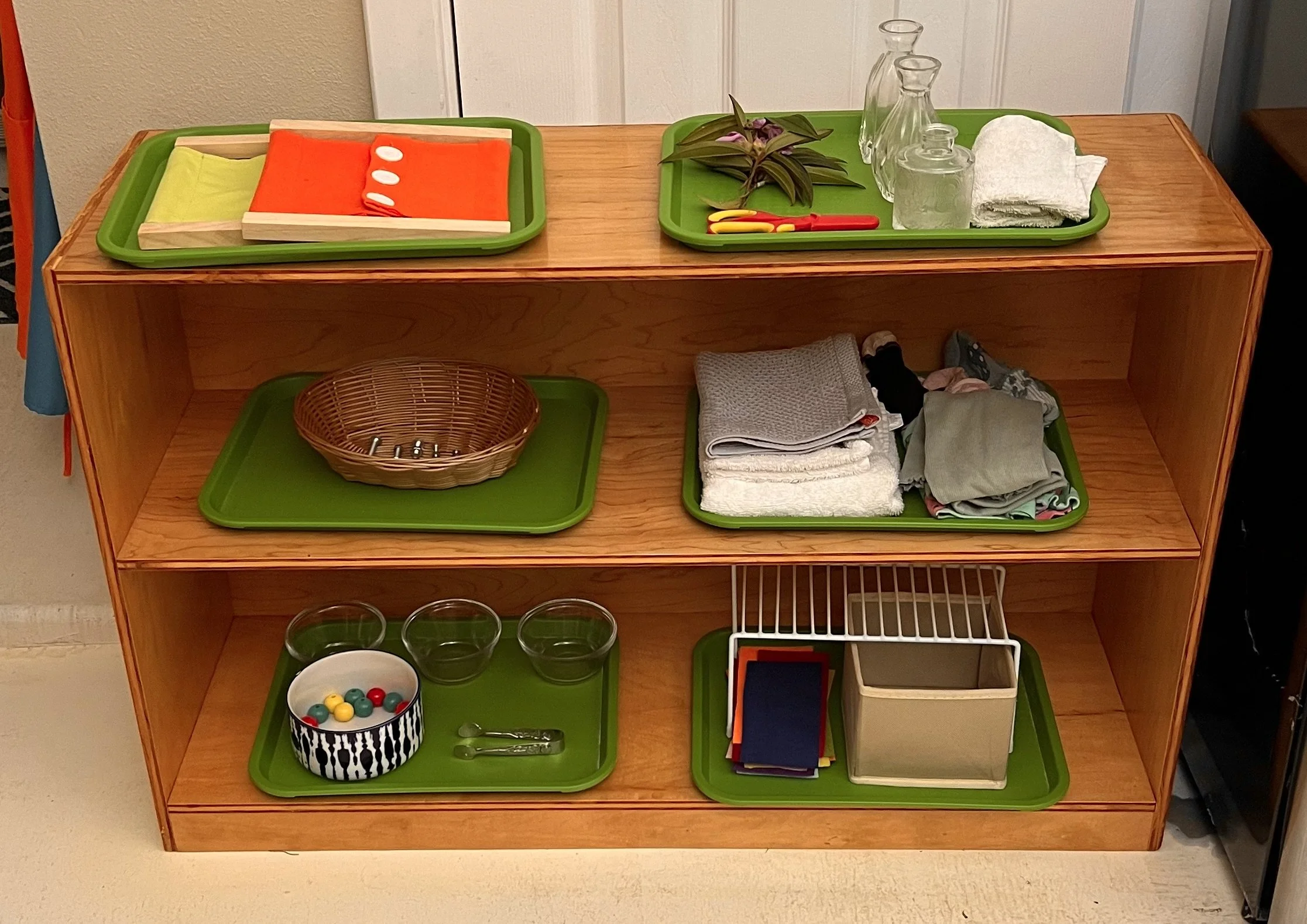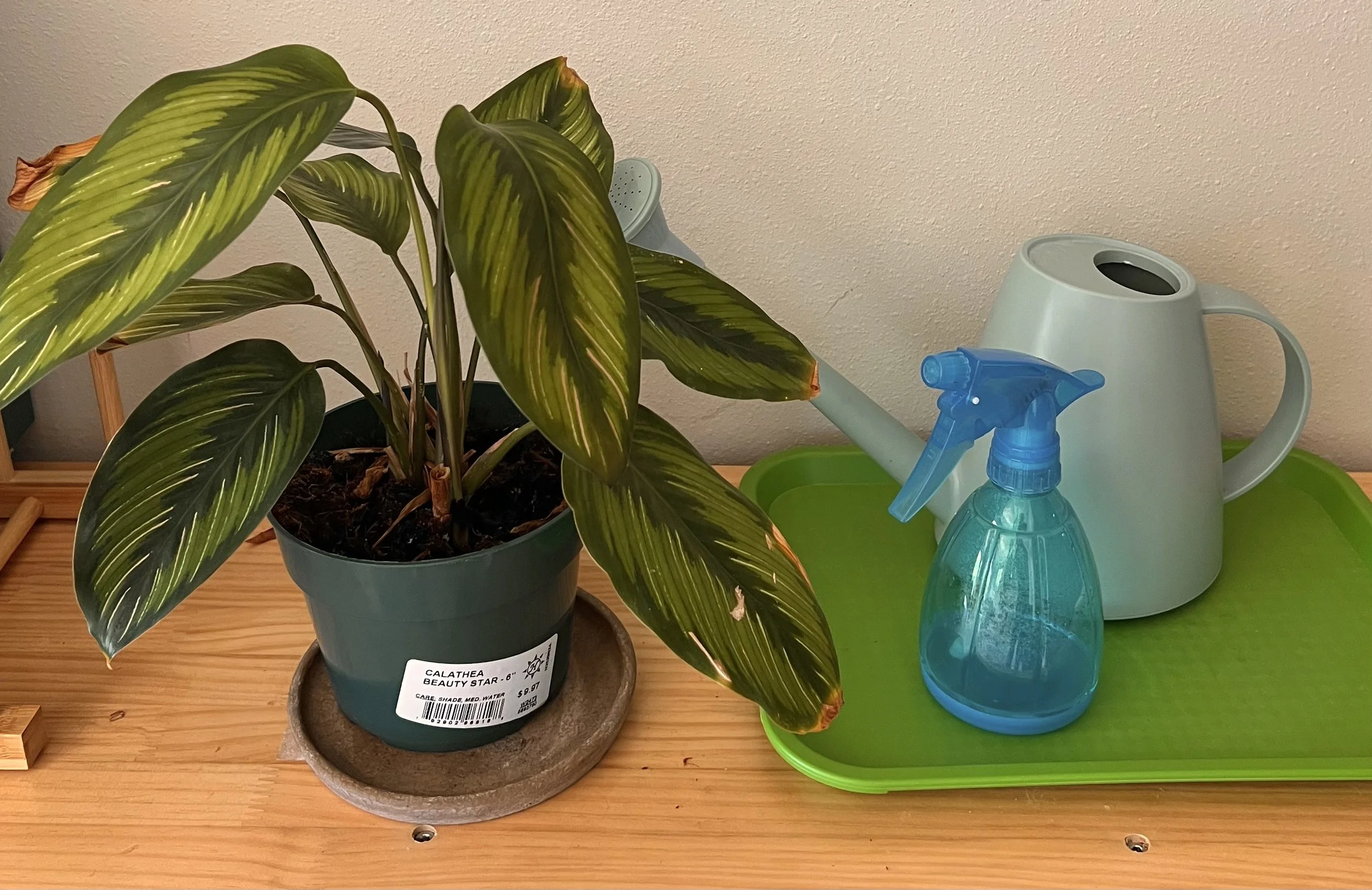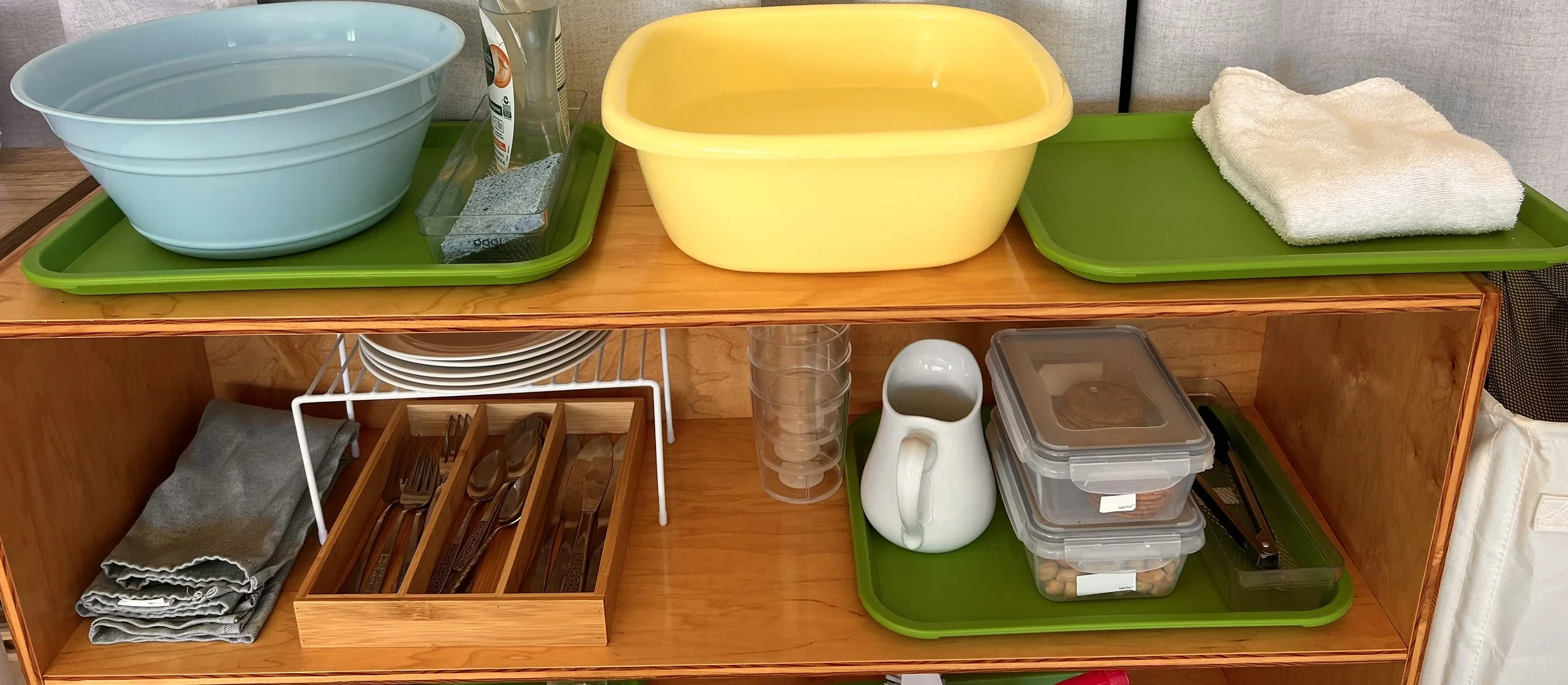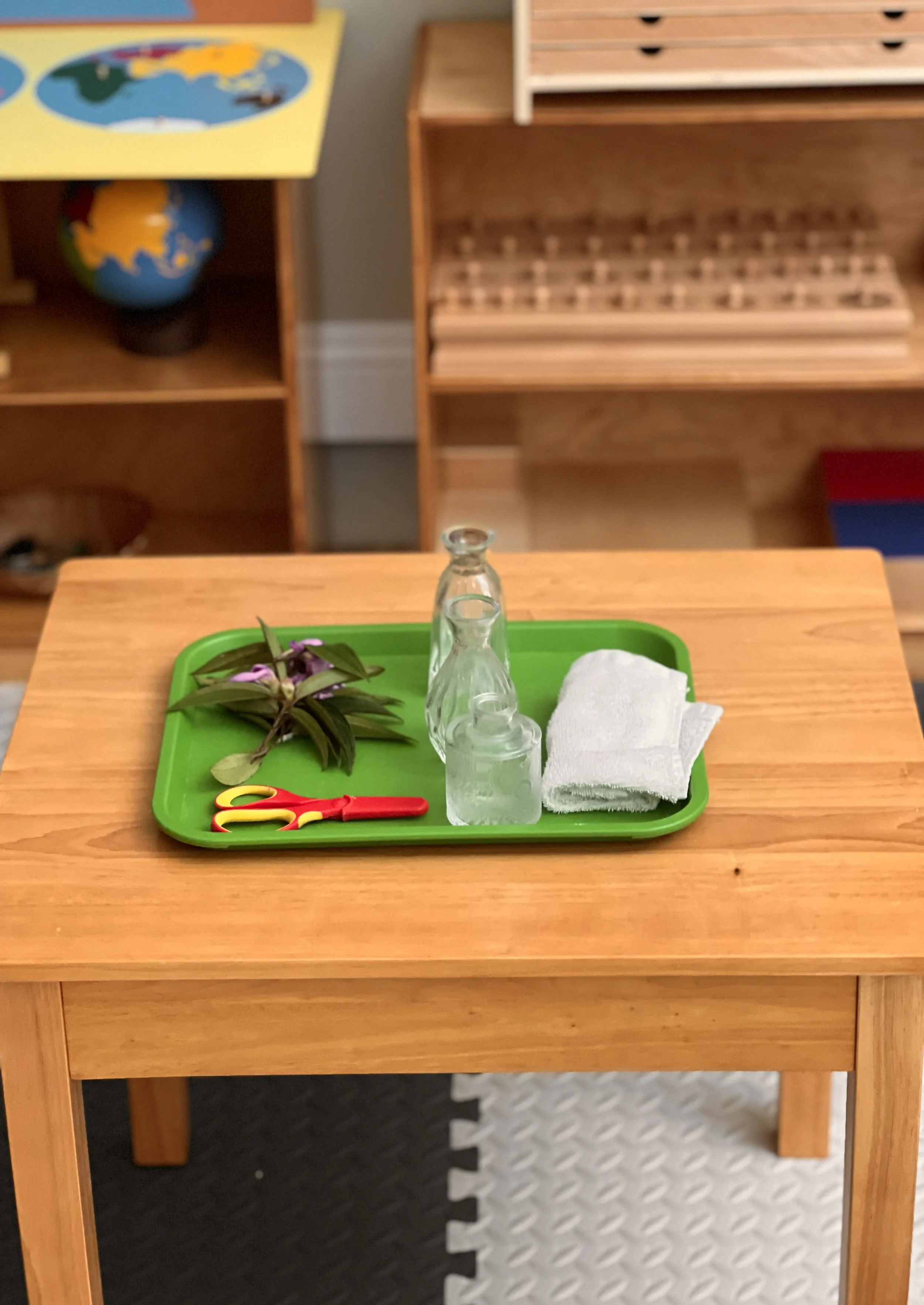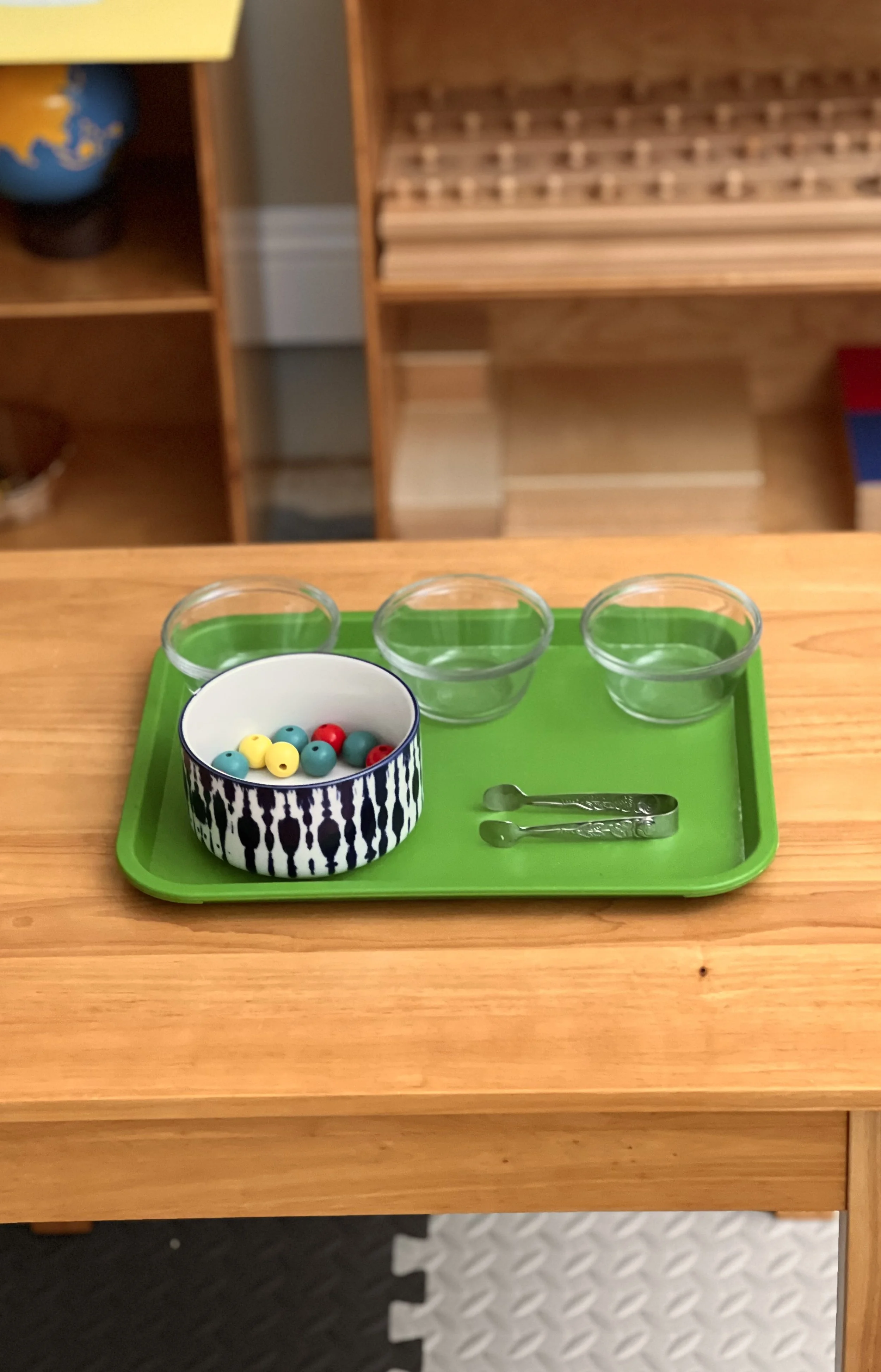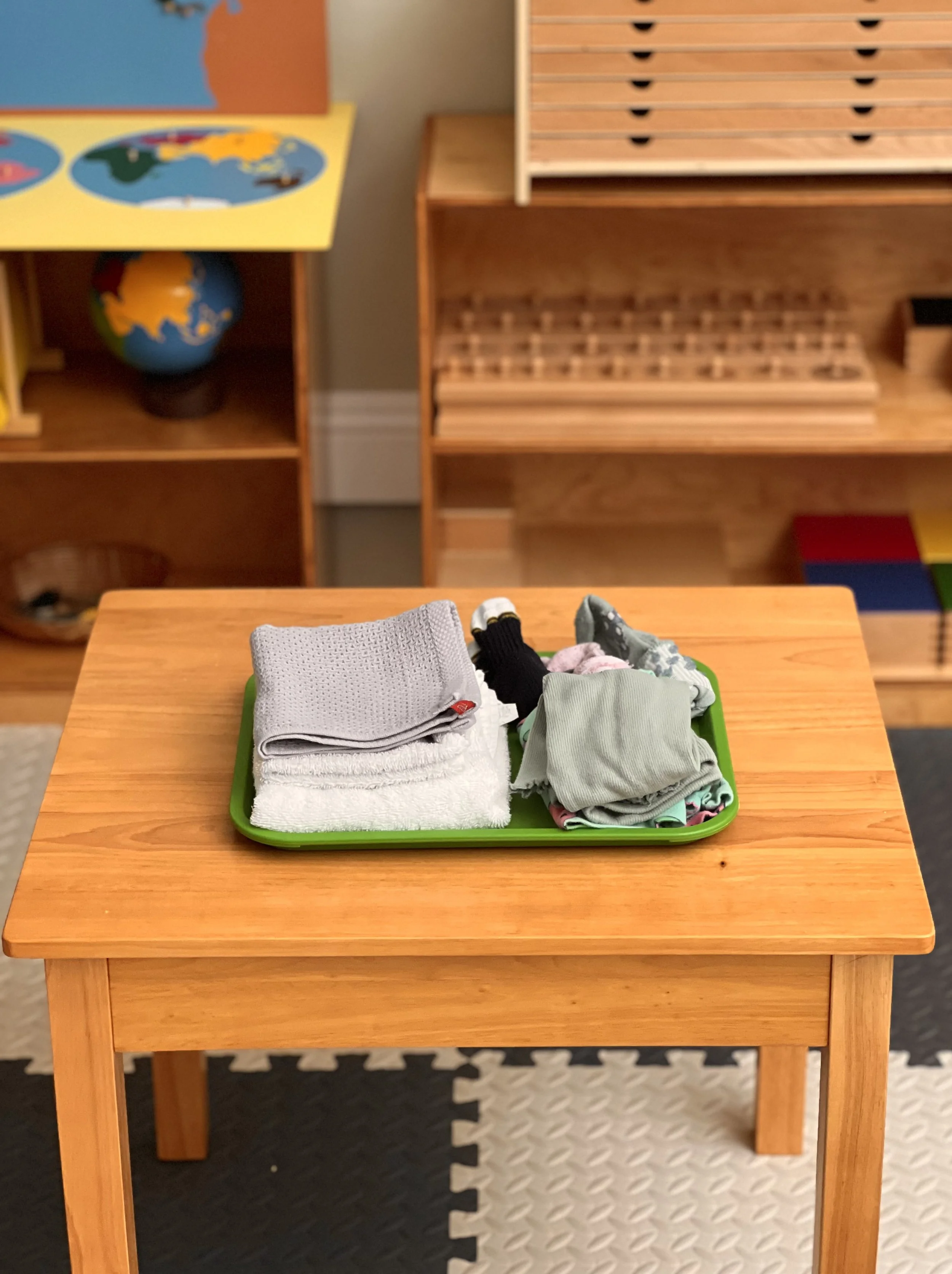Practical Life
In the Montessori classroom, the Practical Life area is where young children begin their journey toward independence. These activities mirror everyday tasks - such as pouring, sweeping, buttoning, and food preparation - but are presented in a child-sized, purposeful way. Through these simple yet meaningful exercises, children develop coordination, concentration, responsibility, and confidence. Practical Life is the foundation of the Montessori environment, giving children the skills and self-assurance they need to thrive in all other areas of learning.
In our classroom
Within our Montessori environment, Practical Life materials are carefully chosen to be child-sized, purposeful, and engaging. Each activity is designed to give children real-life skills while fostering independence, concentration, and a sense of accomplishment. Below are some samples of what you might find in our classroom.
Dressing frames help children develop independence and confidence as they practice everyday skills such as buttoning, zipping, snapping, and tying. These activities refine fine motor coordination, strengthen concentration, and build the foundation for self-care. By mastering each frame, children gain both practical ability and a sense of accomplishment.
Flower arranging allows children to express beauty and creativity while developing care for their environment. Pouring water, trimming stems, and decorating vases and tables refine coordination, sequencing, and attention to detail. This activity also nurtures a sense of responsibility and joy in making their surroundings welcoming and lovely.
Sorting beads with tongs helps children refine their fine motor control, hand strength, and coordination while also practicing precision and focus. The activity develops early math skills through sorting, classifying, and pattern recognition. It also nurtures patience as children carefully transfer each bead.
Washing dishes engages children in a complete cycle of real-life work — soaping a sponge and carefully washing, rinsing, drying, and returning each item to its proper place. This activity develops fine motor skills, sequencing, and attention to detail while fostering responsibility and independence. It also gives children pride in contributing to the care of their environment in a meaningful way.
Folding clothes activities support children in developing order, concentration, and coordination while practicing a skill they see modeled at home. As the fold towels, shirts, pants, and socks, children strengthen fine motor control, spatial awareness, and attention to sequence. This work nurtures independence and price in contributing to the care of their environment.
Clothespin activities strengthen children’s fine motor skills, finger dexterity, and hand-eye coordination, which are essential for writing and other daily tasks. As they clip and unclip pins, children also build concentration and perseverance. This simple yet engaging work encourages independence and gives a sense of accomplishment.
Setting the table teaches children order, sequencing, and responsibility while preparing them for real-life situations. As they place each item in its proper spot, they strengthen memory, spatial awareness, and attention to detail. This activity also fosters independence and sense of contribution to family and community life.
Washing a table and Sweeping the floor help children develop coordination, concentration, and a sense of order while learning to care for their environment. These activities strengthen motor skills and sequencing as children carefully follow each step of the process. This work also builds independence and responsibility by allowing children to actively contribute to keeping their space clean and welcoming.

